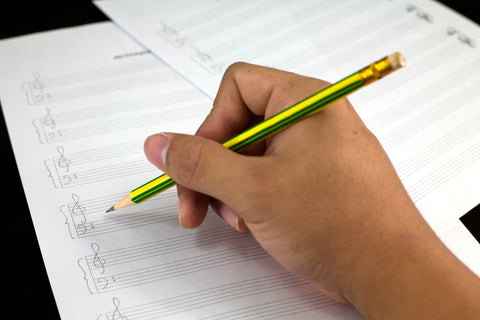
How to plan for the AS AQA Drama AS and Theatre Studies practical exam
£14.95
The aim of this scheme of work is to give Drama and Theatre Studies teachers a series of strategies to help with the practical exam term. It will suggest starting points and ways of reducing time spent searching for appropriate scripts, ways of coping with the Supporting Notes, how to set achievable practical targets that can be related to the preparation grade and emphasise the importance of pre-exam showcases.
The time frame and techniques suggested are simple and could be used for any influencing practitioner at AS and are also appropriate for A2. The AQA specification recommends at least 8 weeks (40 hours) for the AS practical exam. This scheme of work will suggest 9 weeks. Every lesson of those 9 weeks is allocated just to rehearsing the Unit 2 project, so teachers need to be careful to plan set text and live theatre response work around this. At my college, students have 4 lessons a week, totalling 4 hours 20 minutes. Students are set targets on a weekly basis.
The achievement of those targets can contribute to their preparation grade and is a powerful motivator. Emphasise the importance of lunchtime and evening rehearsal if this is a possibility. How you organise this time will also depend on the number of candidates you have.
The AQA AS practical exam states that the work produced should be clearly influenced by ‘an influential director, designer, Theatre Company or other practitioner who has made a significant contribution to theatre practice (past or present)’. The students’ knowledge of their chosen influencing practitioner is going to be tested by practical demonstration, therefore it is an important consideration of exactly when to start work on the practical exam. We start work on their chosen practitioner – Artaud – at the start of the course in September, so the practical exam lessons do not start until after the January units when they have finished their study of Artaud.
Learning objectives
By the end of this scheme of work teachers will have learnt the following:
- To set achievable targets for individual lessons and weeks and, if appropriate, relate those to the preparation grade
By the end of this scheme of work, students will have learnt:
- How to choose a script quickly and get started on rehearsals
- The importance of the first 60 seconds of the performance
- What is expected of them by the end of Week 1
- What will happen if they achieve, or fail to achieve, the set targets
- What the Supporting Notes require
- What they need to show in the final lesson of the week
- How to start planning Section A of the Supporting Notes
- The importance of starting to use extra curricular time for rehearsals
- Simple methods to improve their preparation grades
- To demonstrate clear evidence of chosen influencing practitioner in performance
- To start to consider technical implications of performance and need for a technician
- To achieve first written work deadline
- To continue development, but start to refine practical work
- To finalise script so that it can be sent when needed to the moderator
- To continue development of material
- To review opening section of performance
- To finish Section B of the Supporting Notes
- To finalise decisions on costumes, props and accessories
- Complete their practical exam performance
- Organise a public performance
- Complete all sections of the Supporting Notes
- Plan the final exam performance and relate it directly to the influencing practitioner




